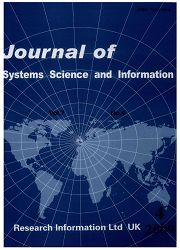

 中文摘要:
中文摘要:
传统金融理论认为机构投资者是“理性经济人”,从而能够采取正确的投资策略。而通过行为金融学的研究发现,机构投资者在投资心理和行为上也会出现各种偏差。根据国内封闭式证券投资基金每季度公布的数据,通过配对T检验的方法,对比分析在牛市、熊市开始和结束时,基金持有股票占资产净值的比例,得出国内机构投资者有“噪声交易者”的特性,并且预测能力和择时能力欠佳的结论。
 英文摘要:
英文摘要:
Traditional financial theory regards institutional investors as "rational economy person", who can adopt proper investment strategies. Through empirical analysis, scholars find that institutional investors also have biases in investment psychology and behavior. This paper uses the data that were published quarterly by close-end funds, adopts "paired-samples T-test" method to analyze the ratio of stocks hold by funds against the NPV at the beginning and the end of both bull and bear markets. Results show that domestic institutional investors have characteristics of "noise traders", and the abilities of forecasting and time-choice are also not satisfyied with.
 同期刊论文项目
同期刊论文项目
 同项目期刊论文
同项目期刊论文
 期刊信息
期刊信息
